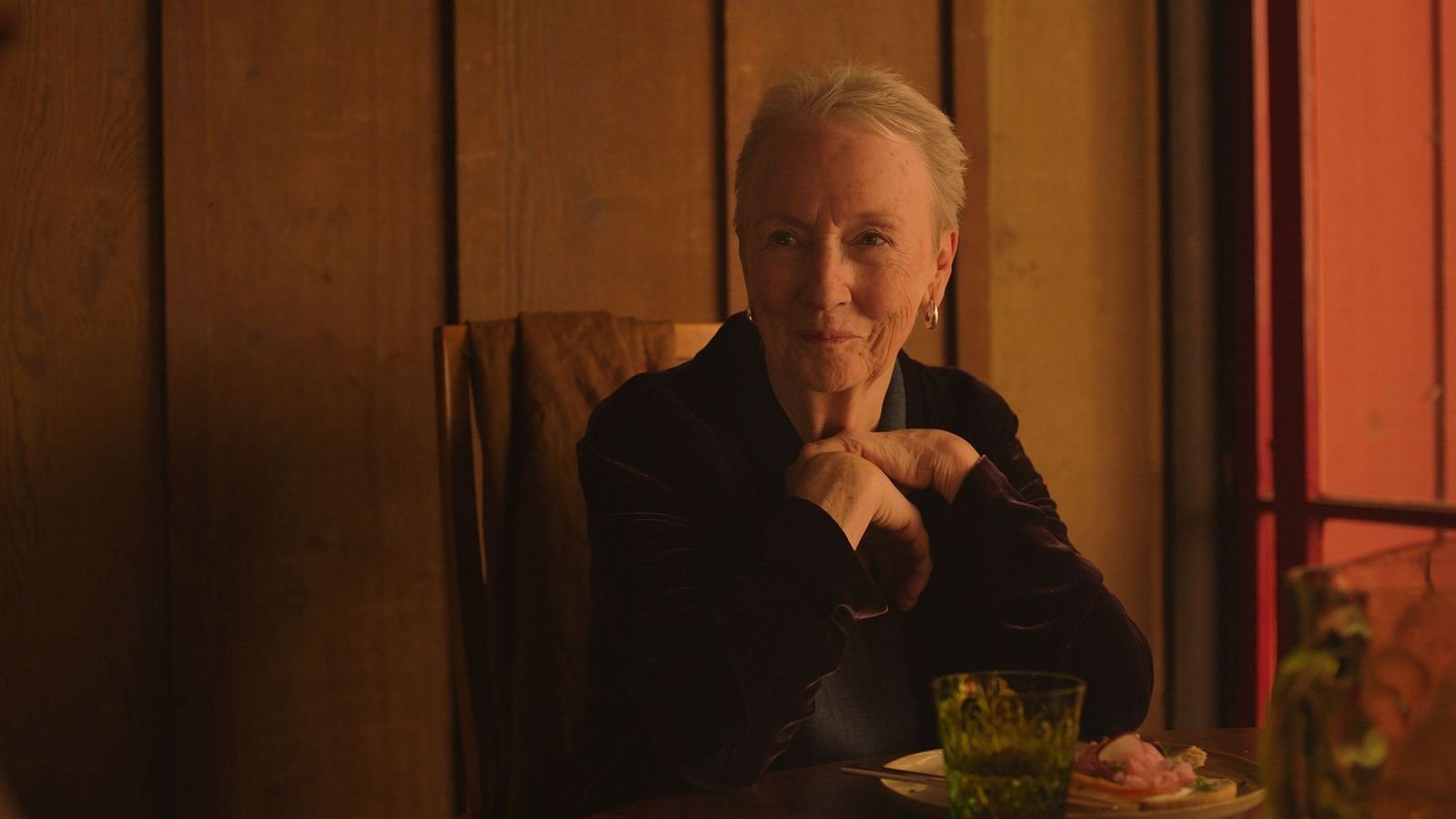“We Can Find Our Way” | Sarah Friedland, Familiar Touch
Writer-director Sarah Friedland’s revelatory coming-of-old-age feature, Familiar Touch compassionately follows the winding path of octogenarian Ruth’s shifting memories and desires while remaining rooted in her sage perspective.
Ruth (Kathleen Chalfant), a retired cook, prepares breakfast in her sunny and cozy kitchen — a dish she seems to have made many times before, although small and puzzling errors now punctuate her comfortable routine. When her son (H. Jon Benjamin) arrives to dine with her, she mistakes him for a suitor. Their “date” takes them to an assisted living facility, which Ruth does not remember that she had previously selected for herself.
Among her fellow memory care residents, Ruth feels lost and adrift, certain she has found herself somewhere she does not belong. As she slowly begins to accept the warmth and support of care workers Vanessa (Carolyn Michelle) and Brian (Andy McQueen), she finds new ways to ground herself in her body, even as her mind embarks on a journey all its own.
Friedland’s feature debut won three awards from the 2024 Venice Film Festival Orizzonti competition, including the Lion of the Future, Best Director (for Friedland), and Best Actress (for Chalfant).
Familiar Touch will screen May 7, at 7:00 p.m. at the Music Box Theatre, as part of the Chicago Critics Film Festival, with Friedland and Chalfant in attendance for a special post-film Q&A; this screening is free for Music Box members.
Ahead of Familiar Touch screening at the festival, Friedland graciously took the time to answer this year’s CCFF filmmaker questionnaire. Below, her individual responses.
How did you first become interested in filmmaking? What was your path toward directing your first film?
My interest in filmmaking came from the collision of still photography and choreography. I always loved watching films, but I didn't realize I could be (and wanted to be) a filmmaker until it crystallized that filmmaking was a way for image-making and movement-patterning to converge in a single form. I studied semiotics, media theory, and choreography as an undergrad. My film school was on-the-job, working my way through every entry-level production job there is: PA, director's assistant, producer's assistant, script coordinator, assistant production coordinator, etcetera. Starting as a student, I began making experimental dance films.
Developing this movement-based filmmaking practice over the last 15 years, across shorts and multi-channel installations, led to my first feature, which I wrote over a decade: the first drafts while still a student and later drafts while working in production and as a memory caregiver.
What inspired you to make the film you're bringing to the festival?
My initial inspiration was my own grandmother's transition through her dementia and into a care facility. A decade later, I worked as a caregiver to New York City artists with dementia, and this job radically shaped my perspective on aging and care labor.
Tell us about a film that you consider a guiding influence (whether it has informed your overarching vision as a filmmaker, directly informed the title you're bringing to the festival, or both).
Umberto D. was a touchstone for me while making Familiar Touch. Vittorio De Sica is so skillful in crafting a character study rooted in the experience of an older character without resorting to pity or infantilization in its dramatization.
Tell us about a location that's held significance to the film you're bringing to the festival: a setting where filming took place, a geographic area that provided a source of inspiration, or another type of space that comes to mind for you in thinking about the film. What made this place so special?
We made Familiar Touch in collaboration with a real continuing care retirement community in Pasadena, California, called Villa Gardens. Our filmmaking team—both cast and crew—facilitated a five-week-long filmmaking workshop for residents to learn filmmaking soup-to-nuts and make their own short films. Alongside care workers at the community, residents then joined both the cast and crew of our feature. The collaboration and input of the residents and staff were crucial to the film's creation, tonal nuance, and authenticity. Without the generosity and creativity of this community, Familiar Touch wouldn't be the film it is.
The theatrical experience brings us together to celebrate artistic experience and expand our horizons as human beings. Tell us about a memorable theatrical experience from your life.
I premiered one of my short films, Drills, at the New York Film Festival during lockdown in 2020. The screening took place outside in a drive-in, and my cast and crew piled into as many borrowed cars as they could find to be able to attend.
During the end credits of our film, they began honking in Morse code (which features in the film) to affirm and acknowledge their shared presence in this makeshift cinema. It was a moving reminder to me that cinema exists in the act of gathering around projected light and amplified sound and that, even in the narrowest days, we can find our way to this orientation.
